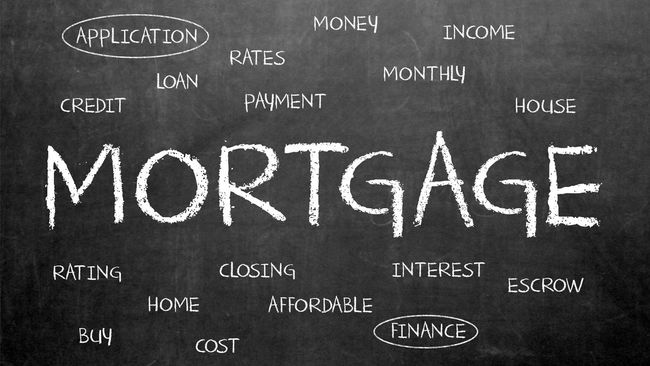The average interest rates for March ranges from 6.18% to 6.82%, a significant decrease compared to the last few months of 2023. Have you made any plans for borrowing yet?
Is the interest rate for March increasing?
Based on Freddie Mac’s interest rates report for March 2024, the average weekly interest rates fluctuated up and down but not significantly. There was a slight decrease in the fourth week of March compared to the third week, dropping from 6.87% to 6.79%, decrease by about 0.1% compared to the first week. The interest rates market’s fluctuations have contributed to the optimism for those in need of borrowing. Additionally, encouraging data out on existing home sales reflects improving inventory. Regardless, interest rates remain elevated, about 7% as markets watch for signs of cooling inflation. Hoping that interest rates will come down further.

Chart showing the weekly interest rates of March 2024
Comparison between March 2024 and February 2024
Based on the chart below, it is easy to see that the interest rates have slightly increased compared to February 2024 whether for 30 years or 15 years. Specifically, the average interest rate in February was 6.77%, but by March, the average interest rate increased to 6.82%.

Chart showing interest rates changes from 02/01/2024 to 03/28/2024
Comparison between March 2024 and March 2023
Based on tables below, we observe that the average interest rate for March 2023 was 6.54%; meanwhile, the average interest rate for March 2024 has risen slightly to 6.82%. Thus, compared to the same period last year, there is a slight increase in the current interest rates.

Chart showing interest rate changes from 01/01/2023 to 03/28/2024
After rising sharply through October 2023, mortgage rates have settled around 7 percent. The average rates on a 30-year mortgage was 7.01 percent as of March 27, according to experts’ survey. While that’s a welcome decrease from 8.01 percent on Oct. 25 of last year, it’s still higher than the 6 percent rates seen in January.
Powerful influence of interest rates on the real estate market
When entering the real estate market, interest rates play a very important role. High interest rates make it difficult to attract money into real estate. That’s why borrowers always keep an eye on interest rates changes to make timely decisions when they feel the interest rates are suitable for them.
Home Buying Affordability:
Interest rates impact the affordability of buying a home by determining the level of expenses that buyers must pay to borrow money to purchase a property. When interest rates decrease, borrowing becomes cheaper, thereby creating favorable conditions for many financially capable individuals to buy new homes. Conversely, when interest rates rise, borrowing costs increase, potentially reducing homebuyer interest due to higher monthly mortgage payments.
Therefore, when interest rates are increasing, the housing market slows down. Conversely, when interest rates drop, the cost of buying a house becomes cheaper, which increases the demand for housing. Lower interest rates go hand in hand with a bustling housing market. This increase in demand then slowly increases home prices.
Investment Attraction:
Many people like to invest in real estate because it can be a good way to make money. How much interest they have to pay on borrowed money can make real estate more or less attractive to invest in. When interest rates are low, it’s cheaper to borrow money, which makes people more likely to buy property hoping to make more money compared to what they would get from putting their money in a savings account or other safe investments. In summary, low interest rates will attract more investors, thereby increasing the demand of housing market.
Construction and Development:
The part of the business that builds new houses and buildings really pays attention to interest rates. When these rates are low, it costs less to borrow money for building projects, which makes it a great time to build more. On the other hand, if interest rates go up, it becomes more expensive to borrow money. This can make businesses think twice about starting new projects because it could mean they make less profit.
In summary, low interest rates mean lower borrowing costs, encouraging construction activity to increase, thereby boosting the housing market supply. Conversely, high interest rates lead to higher borrowing costs, which may make businesses hesitant to start new projects due to reduced profits, thus restricting the housing market supply.

Interest Rates’ Impact on the Housing Market
Expectations interest rates in the future and opportunities for borrowers
The Federal Reserve and signs of how the economy is doing are big factors in deciding how these interest rate trends go. Experts think that in 2024, these rates might go down. Predictions from places like Freddie Mac and Fannie Mae expect interest rates to be around 6% at the end of the year. Even though there haven’t been increases in interest rates lately, people with loans should keep up with the news and think about refinancing their homes. If the new interest rates go lower than what they’re currently paying, they could save money.
People with loans should keep an eye on how the market is doing and make sure their credit scores are good. If you get in touch with us, we can help you find the best interest rates and banks for your needs.

Interest rates and opportunities for borrowers
Conclusion
Based on Freddie Mac’s report, from August 2023 until the first week of December 2023, interest rates remained above 7%. However, in March 2024, interest rates significantly decreased, sometimes dropping to 6.74%. Contact us to stay updated with significant information and make informed decisions.
http://www.danguard.com/the-best-time-to-enter-the-housing-market-for-buyers/


